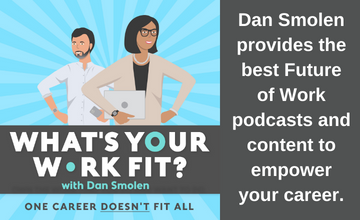Podcast: Play in new window | Download (Duration: 37:51 — 52.0MB)
Future of work podcaster Dan Smolen says that the time has come for healing an emotionally distressed workforce.
Gallup’s latest workforce study is out, and it indicates that workers across the globe are suffering.
And Jim Clifton, the Chairman and CEO of Gallup, minces no words:
“What if the next global crisis is a mental health pandemic?
It is here now.”
Gallup concludes that the global workforce is enduring a second pandemic.
People who work suffer mental and emotional distress at alarming rates:
- Nearly half of North American workers (48 percent) worry. More than half of female workers (53 percent) express worry versus 43 percent of male workers, and;
- 57 percent of North American workers endure stress. Of these, 62 percent of female workers are affected (versus 52 percent of male workers).
What is more, 80 percent of workers worldwide disengaged from the work that they do.
In North America, the share of suffering workers is 66 percent. However, professional talent in the US and Canada expressed disengagement several years before the pandemic happened.
Meantime, SHRM published workplace insights that are equally jarring. All told, SHRM estimates that 64 percent of the workforce suffers from disengagement. And that share of suffering aligns with Gallup’s 66 percent finding.
Stress and worry cause great suffering. And we know that people who mastered work from anywhere reject a return to commuting long hours and distances to the co-location.
Healing an emotionally distressed workforce is in everyone’s best interests.
Work should not make people sick. And hiring managers must embrace new strategies and arrangements that help their team members thrive.
Rowena Hennigan at RoRemote adds important perspective to this topic, here: Ways to integrate mental health awareness into remote working
Also in this episode:
Fostering a civil workplace is key to the future of work. Civility gets people closer to good mental health.
As a self-described Chief Civility Officer, Sejal Thakkar applies her legal expertise and personal experience with discrimination to help civilize workplaces. Civility helps professionals of all backgrounds and cultures feel supported in their work. It also spares companies from lawsuits, low talent retention rates, and billions of dollars in lost revenue.
Full interview with Sejal starts at 8:06
About our guest:
Sejal Thakkar earned a Bachelor of Science in Accounting from the University of Illinois at Urbana-Champaign and a Juris Doctorate from Northern Illinois University. She is a TEDx speaker focused on bias. Sejal lives and works in the Bay Area of California.
EPISODE DATE: July 16, 2021
Social media:
– TEDx: The Pain, Power, and Paradox of Bias
